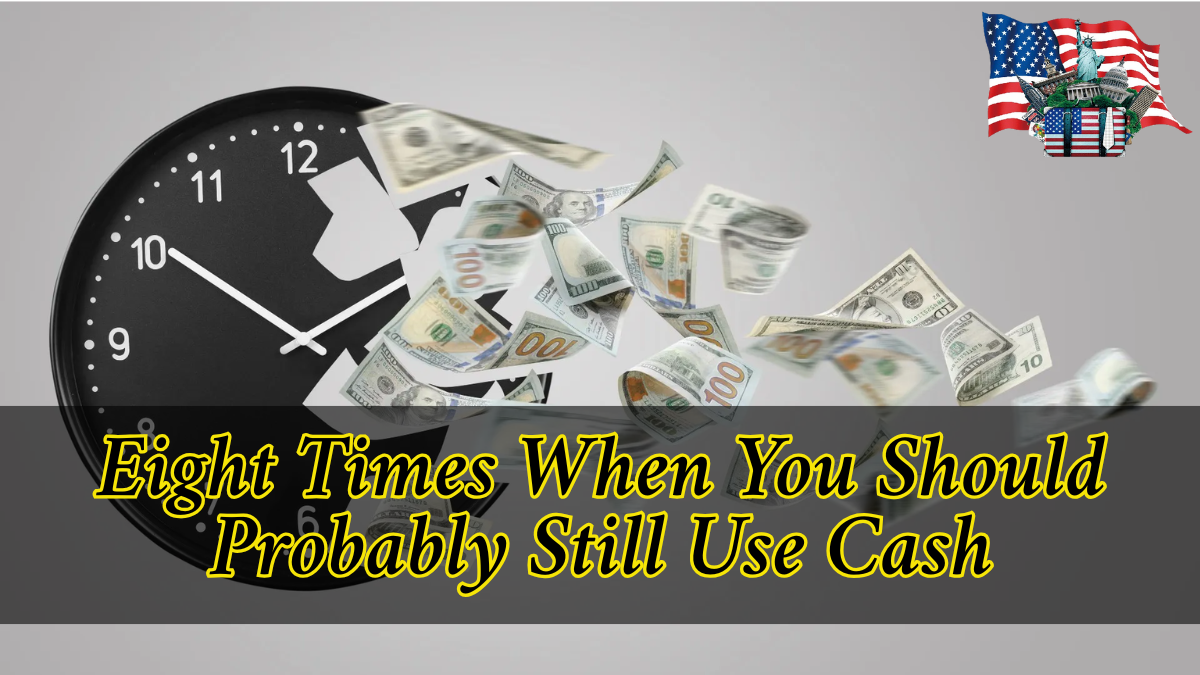In today’s rapidly evolving financial landscape, the choice between using cash and credit cards is more significant than ever. While credit card usage has surged due to convenience and evolving digital payment ecosystems, cash still holds critical advantages that many overlook. In this guide, we’ll explore when and why using cash can be the smarter option, while also acknowledging scenarios where credit cards have the upper hand.

Summary Table: Cash or Credit
| Topic | Key Takeaway | Official Link |
|---|---|---|
| Psychological Spending | Cash creates awareness and limits overspending | Consumer.gov – Budgeting |
| Budgeting | Easier to track spending with physical cash | MyMoney.gov – Budget |
| Avoiding Fees | Cash avoids interest, overdraft, and late fees | FTC – Credit Basics |
| Discounts for Cash | Some merchants offer lower prices for cash purchases | IRS – Tips |
| Privacy & Tracking | Cash prevents companies from tracking spending habits | FCC – Privacy Tips |
| Convenience | Universally accepted and crucial abroad or during tech failures | USA.gov – Travel Tips |
The Psychological Power of Cash
Using cash activates a psychological barrier that helps prevent overspending. Danny Kofke, a financial educator, emphasizes that handling physical money creates an emotional connection. “You see how long you worked for it, making it harder to part with,” he says. Unlike swiping a card, where spending feels intangible, counting out cash builds financial awareness.
Saranya Ramanathan, a personal finance blogger, agrees: “Cash forces you to watch your dollars turn into cents. It’s a mind trick that promotes frugality.”
Ideal Situations to Use Cash
1. Small Purchases
Local businesses and small retailers often prefer cash due to credit card processing fees. Some even offer discounts for cash transactions. Moreover, tipping in cash is still customary and appreciated.
2. Avoiding Fees and Debt
Cash is a one-time transaction, eliminating the risk of:
- Overdraft fees
- Late payment penalties
- Accrued interest
- Negative credit reporting
As Beverly Friedmann points out, “With cash, you spend what you have. No bills, no surprises.”
3. Budgeting Simplicity
Cash simplifies personal budgeting. You can divide money into envelopes for specific expenses—an effective tactic known as the envelope method. Friedmann notes, “It becomes easier to allocate money and monitor your spending.”
4. Discounts for Cash Payments
Some merchants offer incentives for paying with cash. For example, electronics stores, gas stations, or independent contractors may provide a price break for avoiding card fees.
Anecdotally, Danny Kofke shared a story of a friend who negotiated a TV price from $1,000 to $700 simply by offering cash.
5. Travel and Emergency Use
Cash is invaluable when traveling. Not every country or small vendor accepts cards. Furthermore, cash is essential if your card is declined or if there is no internet service to process digital payments.
6. Credit Score Protection
Chantay Bridges, a financial advisor, explains that using cash safeguards your credit score. “No late payments, no risk of repossessions, and no inquiries from creditors.”
7. Privacy and Reduced Tracking
Cash transactions are anonymous. Using a card can invite:
- Targeted ads
- Data sharing
- Increased junk mail
Cash eliminates the digital trail.
When Credit Cards Are Better
Despite the many perks of cash, credit cards do offer advantages in specific situations:
1. Large Purchases and Recurring Payments
Items like flights, hotel stays, and subscription services are often easier to manage with a credit card. These transactions:
- Offer fraud protection
- Are easier to track online
- Often earn rewards
2. Building Credit
Responsible card use helps build and improve your credit score. This can be essential for qualifying for loans, mortgages, and even job applications.
3. Cashback and Rewards
Using credit cards strategically allows you to earn:
- Airline miles
- Hotel points
- Cashback
As Friedmann says, “These rewards add up significantly over time.”
4. Emergency Expenses
Credit cards can be a lifeline in emergencies when cash isn’t available or sufficient.
Combining Both for Maximum Benefit
To truly master personal finance, many experts recommend a hybrid approach:
- Use cash for discretionary, daily expenses (e.g., food, entertainment, tips).
- Use credit for scheduled, large, or online purchases where protection and rewards are beneficial.
This strategy allows you to benefit from the psychological discipline of cash while leveraging the advantages of credit.
Frequently Asked Questions (FAQs)
Q1: Is it safer to carry cash or a credit card?
A: Credit cards offer fraud protection and can be canceled if lost. However, cash is universally accepted and does not require connectivity to use.
Q2: How much cash should I carry?
A: Enough for daily expenses or emergencies—typically between $20 and $100, depending on location and situation.
Q3: Are there places that still don’t accept cards?
A: Yes. Small vendors, some taxis, farmers markets, and international destinations may still be cash-only.
Q4: Can cash help improve my budgeting skills?
A: Absolutely. Seeing your cash physically diminish helps reinforce budgeting discipline.
Q5: What are the risks of relying only on credit?
A: High-interest debt, late fees, overspending, and potential credit score damage.
Conclusion
Cash isn’t obsolete—far from it. While credit cards offer convenience, rewards, and tracking benefits, cash provides unmatched budgeting control, privacy, and spending discipline. The key is understanding when to use each effectively to reach your financial goals. By using both strategically, you can build a solid financial foundation without falling into the traps of debt or overspending.
Click here to know more